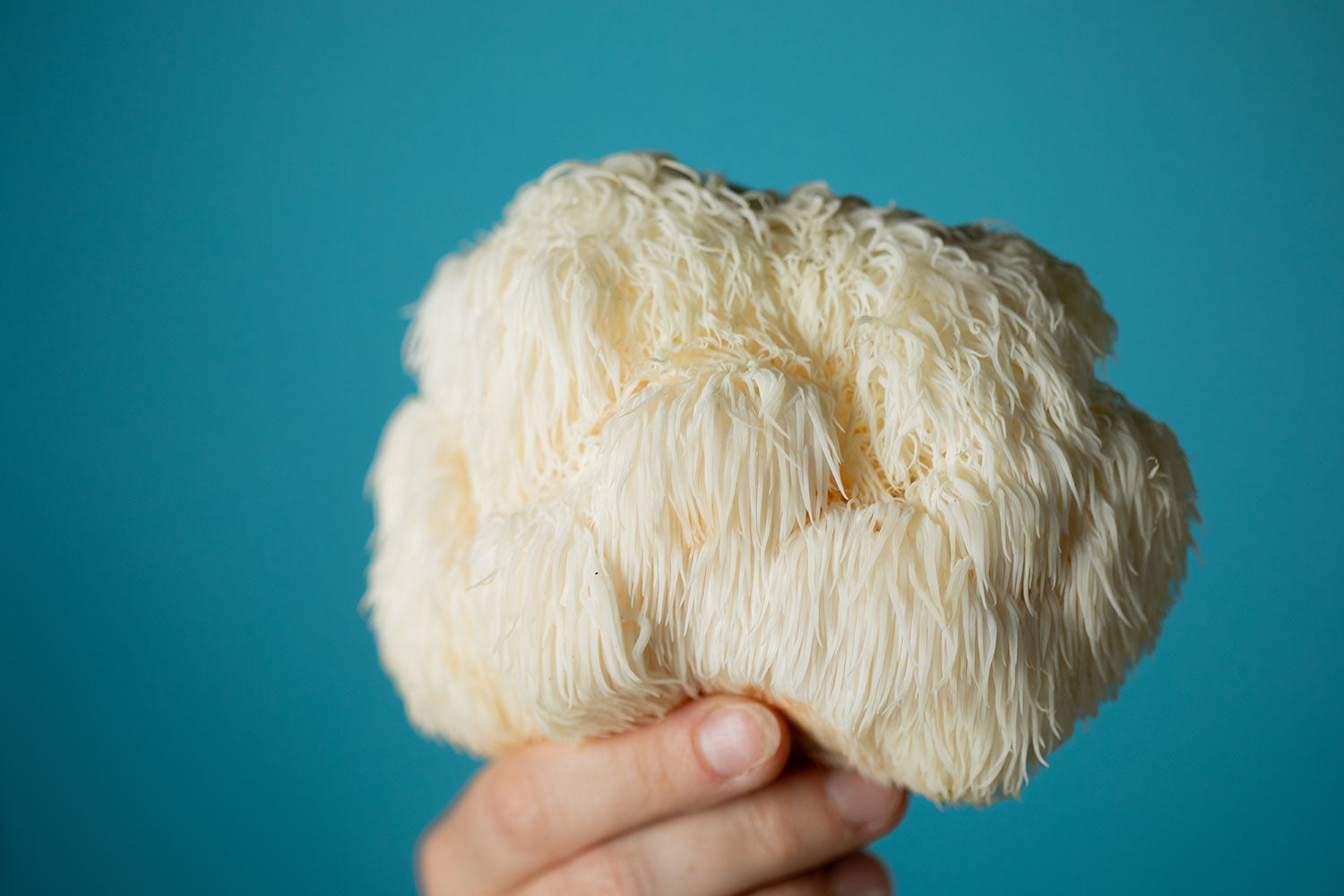The Magic of Beta-Glucans: Why Polysaccharides in Mushrooms Matter
3 minute read

If you’re getting into mushrooms, a word you hear thrown around a lot is Beta-glucans, β-glucans or Polysaccharides! But what are they? And why do people care about them so much? Well, because they have been known to boost the immune system, reduce inflammation, and have strong antioxidant properties. This is great, but polysaccharides are also said to support gut health, regulate blood sugar levels, and enhance energy and endurance. Plus, they love to promote liver health.
And people are turning to functional mushrooms as their source because they offer a natural source of these beneficial compounds compared to synthetic supplements. And you know Stay Wyld Organics is always organic.
What and how?
Polysaccharides are carbohydrates that are not just energy suppliers but also significantly affect digestive health and overall well-being. To fully understand them, we need to examine how they are structured, how food processing impacts them, and how they behave in our gastrointestinal tract.
The Structure of Polysaccharides:
Polysaccharides are large, complex carbohydrates composed of many sugar molecules linked together. The most familiar polysaccharide is starch, found abundantly in foods like potatoes, rice, and wheat. Starch comprises two molecules: amylose and amylopectin, each contributing to different aspects of starch behaviour in cooking and digestion.
Nonstarch polysaccharides (NSPs), such as Β-glucans, are crucial dietary fibres found in functional mushrooms. These NSPs in plant and fungal cell walls support digestive health by resisting complete breakdown in the small intestine. Chitin, a fibrous substance in fungal cell walls, adds structural support and dietary fibre. At the same time, β-glucans are known for their immune-boosting properties, enhancing the activity of macrophages and natural killer cells.
Behaviour in the Gastrointestinal Tract:
In the digestive system, starches and NSPs behave quite differently. Starches begin to break down in the mouth and continue in the stomach and small intestine, providing glucose as a quick energy source. On the other hand, NSPs pass through to the colon largely undigested, where they serve various functions, including feeding the beneficial bacteria in our gut microbiome. These bacteria, in turn, ferment the fibres into short-chain fatty acids (SCFAs), which provide numerous health benefits, including improved gut health and reduced inflammation.
Health Benefits of Polysaccharides:
Polysaccharides have many health benefits. Dietary fibres can help regulate blood sugar levels, reduce cholesterol, and prevent intestinal disorders such as constipation and diverticulitis. They also play a role in weight management by promoting a feeling of fullness and reducing overall calorie intake. Moreover, the fermentation of fibres in the colon can help protect against colon cancer and enhance the absorption of essential minerals.
What mushrooms are known to have polysaccharides, and what kind are they?
-
•Shiitake (Lentinus edodes) - Shiitake mushrooms are rich in lentinan, a type of beta-glucan known for its immune-modulating and anticancer properties (Edible Mushrooms, a Sustainable Source of Nutrition).
-
Maitake (Grifola frondosa) - Maitake contains polysaccharides that can stimulate the immune system and have potential anti-cancer benefits. They have also been studied for their role in enhancing antibody production in response to influenza vaccination (Maitake mushrooms (Grifola frondosa) enhances antibody production).
-
Chaga (Inonotus obliquus) - Known for its high content of immune-boosting ingredients and antioxidants, Chaga mushrooms support the immune system and general health (Benefits and Mechanism of Action of Chaga Mushrooms).
-
Turkey Tail (Trametes versicolor) - These mushrooms contain polysaccharide-K (PSK), which is used as an adjuvant in cancer therapy in some countries due to its immune-enhancing effects.
-
Cordyceps (Cordyceps sinensis) - Cordyceps are celebrated for their bioactive polysaccharides that help in energy enhancement and boosting athletic performance.
- Oyster Mushrooms (Pleurotus ostreatus) - These mushrooms are studied for their immunomodulatory properties, making them beneficial in strengthening immune responses (The Initiation of healthy villages with tourism potential through the cultivation of oyster mushrooms with immunomodulatory properties).
Polysaccharides! One of our favourite parts of mushrooms.
Always consult with a healthcare provider before starting any new supplement regimen, particularly if you have underlying health conditions.
Additional Resource: https://www.ncbi.nlm.nih.gov/pmc/articles/PMC5152545/
Leave a comment
All comments are moderated before being published.
This site is protected by hCaptcha and the hCaptcha Privacy Policy and Terms of Service apply.

